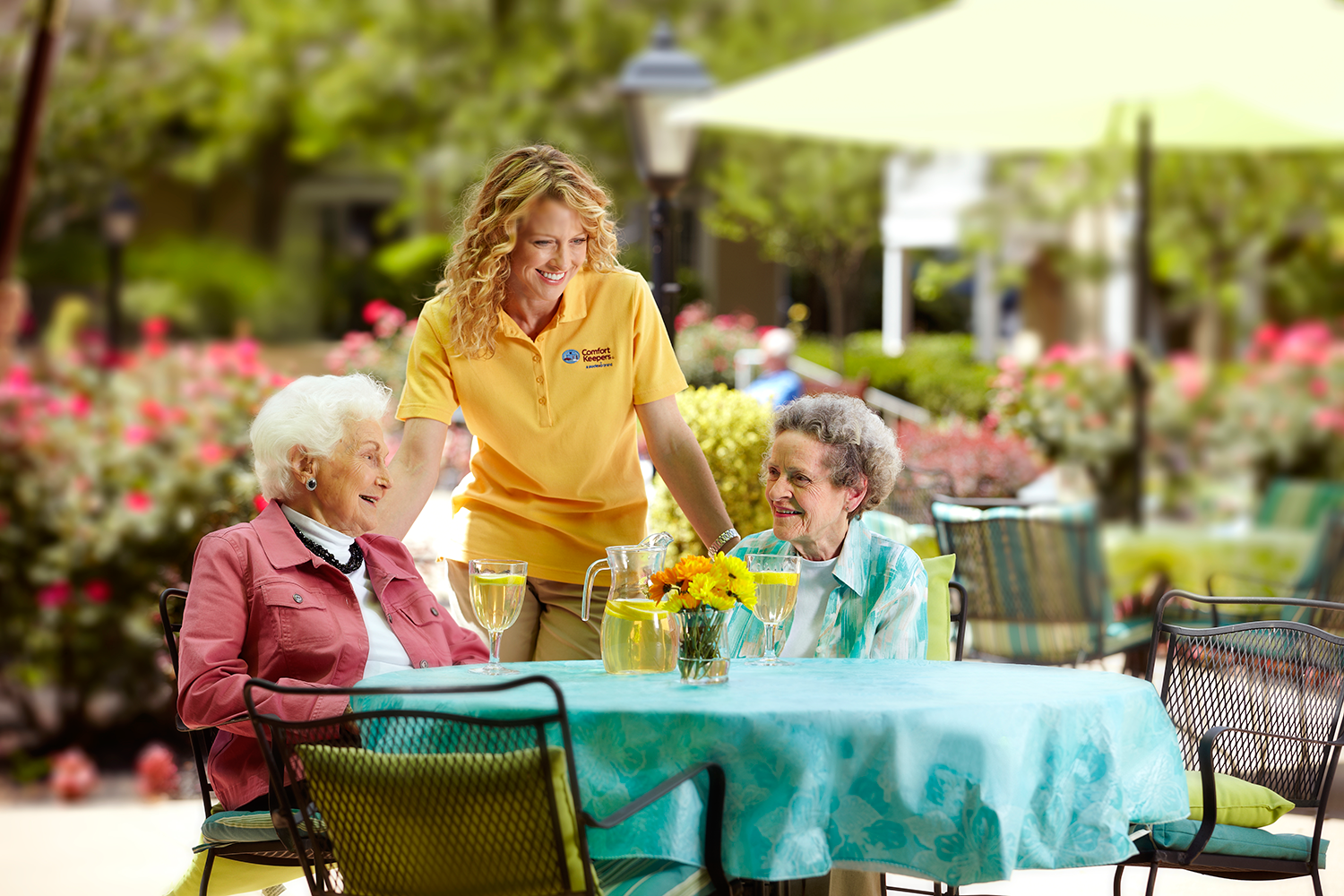Obesity in Seniors
Edmonton Senior Health | July 26, 2018

What Every Senior in Edmonton, AB, Needs to Know About the Dangers of Obesity
Obesity in Seniors | You’ve probably seen charts and statistics over the last decade showing the United States as one of the world’s most obese countries. You’ll frequently see news coverage of this “national epidemic.”
Despite valiant attempts in the U.S. to educate the public about proper nutrition and exercise, the same issue remains, and the sad fact is that about one-third of adults are obese. The reporting of obesity as reaching “epidemic” levels could be slightly exaggerated, but regardless, obesity warrants our concern at this point.
Understanding Obesity in Seniors
Body Mass Index (BMI) is an individual’s body fat based on weight and height. The desired BMI is 19 – 25, indicating a typical healthy weight. Those scoring 30 or above are generally considered obese.
As a person’s BMI levels increase, so does the risk of developing certain chronic diseases, such as hypertension heart disease, or even leading to stroke. Extra weight gain adds stress to the knees and other joints, creating diminished mobility with declined physical ability. As studies show, there may even be a connection between obesity and early cognitive impairment or decline.
Prevent Obesity in Seniors
Of course, obesity can be a concern for adults as they age since they are already in a higher risk category for the diseases and conditions mentioned above. Fortunately, lifestyle changes can be adopted to eliminate excess weight and prevent obesity. At any age, it’s best to consult a doctor before starting any of the following weight loss tips.
Three Tips to Prevent Obesity in Seniors:
Tip #1. Eat Healthy Foods:
Control food portions and caloric intake. Provide the proper nourishment. Skip the salty and sugary snacks and consume whole fruits and vegetables instead.
Tip #2. Exercise:
High-intensity exercise isn’t necessary for health benefits. Just make an elevated heart rate your goal with low-impact activities (e.g. walking and swimming). This will also assist in burning calories. A half-hour per day can be perfect as a successful exercise regimen.
Tip #3. Strength Training:
Even at rest, the body’s muscle tissue burns calories more efficiently than fat tissue, it’s important to strengthen the muscle groups using free weights or other weight-bearing exercises for a minimum of 20 minutes, 2-3 times per week. If you don’t know where to start, sign up for a strength training class at your local gym or YMCA.
The health and well-being of our aging loved ones is a priority. Encourage seniors to follow the above tips and reduce excess weight to prevent obesity. This will keep them looking forward to a happier, healthier future.
Comfort Keepers® Edmonton is Proud to Offer a Wide Range of Home Senior Care Services
Our trained caregivers will ensure your loved one is comfortable, independent and safe in their home. On top of that, we will also aim to enhance their overall health, quality of life and general happiness.
Top-Notch Home Healthcare for Seniors in Edmonton, Alberta
Comfort Keepers of Edmonton offers a broader range of senior care services. We offer retirement care, respite care, senior care, companionship care, end-of-life care, post-surgery care, palliative care, personal care, and senior living transition services. If you are concerned about the health and well-being of your aging loved ones, we can provide 24-hour care and more!
Helping Seniors Age-in-Place with Companionship Care and Interactive Caregiving™
Empathetic care starts in the heart and allows us to meet our client’s needs. Our trained caregivers are selected with one specific quality in mind, empathy. We strive to stimulate our clients emotionally, mentally and socially, thus enhancing their overall quality of life.
Our Interactive Caregiving™ provides a system of care that addresses companionship, safety, nutrition, mind, body, and activities of daily living (ADLs). The system increases seniors’ sense of well-being, independence and companionship by focusing on Senior Mind, Senior Body, Senior Nutrition, and Senior Safety.
Affordable and Client-Directed Homecare is Available for Qualifying Albertans
Comfort Keepers® Edmonton is an Approved Service Provider for the Client Directed Homecare Invoicing (CDHCI) Program Offered by Alberta Health Services.
What is the Client Directed Home Care Invoicing Program (CDHCI)?
CDHCI is a great program provided by Alberta Health Services (AHS), allowing clients to choose an approved agency like Comfort Keepers Edmonton for Personal Care, Respite Care and Homemaking needs. The chosen agency can then bill AHS directly for services rendered for approved hours through Alberta Blue Cross. Read more about the program HERE.
Accredited Home Care Edmonton
Comfort Keepers® Edmonton was awarded the “Accredited with Exemplary Standing” seal by Accreditation Canada. This honour demonstrates Comfort Keepers’ commitment to offering safe, high-quality home care to its senior clients in Edmonton, AB.
To learn more about senior in-home care in Edmonton, contact the Comfort Keepers® office. Our service territory includes Edmonton, Devon, Sherwood Park, Stony Plain and surrounding areas, contact the Comfort Keepers Edmonton office at 780-465-4665.
Individualized Home Care Options
Long-Term Home Care, 24 Hour Home Care & Short Term Care Options Customized for You







